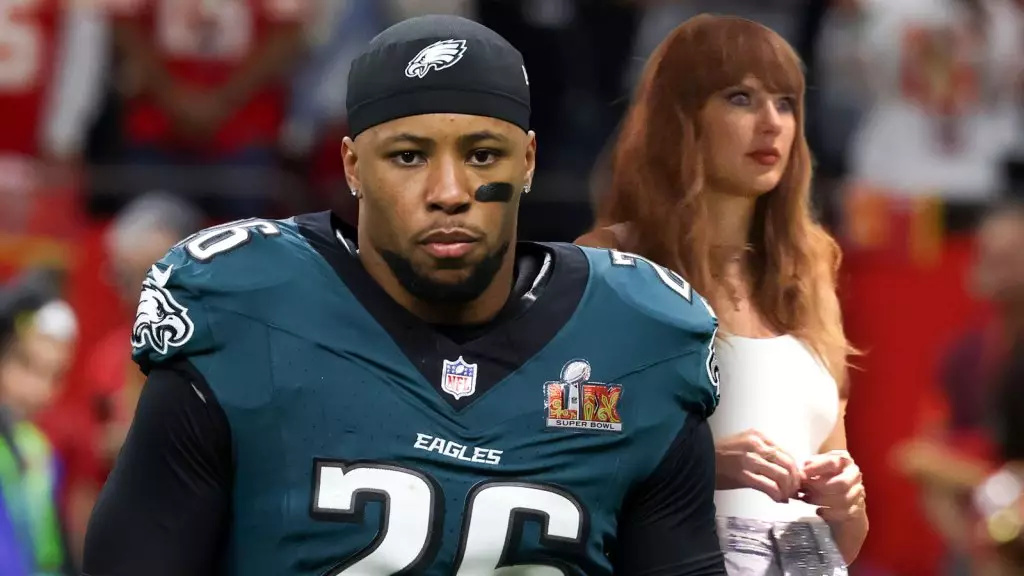In the intense arena of professional football, few fan bases are as fervently dedicated as the Philadelphia Eagles supporters. Their loyalty often manifests in colorful displays of emotion, both positive and negative. However, this passion took an unexpected turn during the latest Super Bowl when pop icon Taylor Swift found herself the target of boos from the crowd. This shocking reaction raises questions not only about fan behavior but also about the intersection of sports and celebrity culture.
In a recent appearance on The Howard Stern Show, New York Giants running back Saquon Barkley came to the defense of Swift, who attended the Super Bowl to support Kansas City Chiefs’ player Travis Kelce. Barkley expressed his dismay over the treatment Swift received, questioning the rationale behind the negative reaction. “I don’t get it. I don’t understand why she was getting hate there,” he remarked, showcasing a level of empathy that resonates with many supporters of Swift. His arguments highlight the disconnect that can occur when celebrity presence in sports elicits unwarranted hostility.
Barkley went on to commend Swift’s role in enhancing the sport’s popularity. With the NFL’s ongoing efforts to globalize the game—breaking into markets like Brazil and Mexico—he emphasized that Swift’s involvement only serves to elevate the sport’s profile. “She’s made the game bigger,” Barkley noted, advocating a broader understanding of how figures from outside the sport contribute to its visibility and growth. His defense speaks to a deeper cultural exchange occurring within sports, where celebrities can help create a shared narrative between music, entertainment, and athletics.
The moment when Swift was booed quickly went viral, particularly due to her candid reaction alongside her friend Ice Spice. Yet, while Barkley sought to paint a positive narrative, not everyone joined in this sentiment. Notably, Donald Trump, the former U.S. President, took to Truth Social to mock Swift, claiming, “The only one that had a tougher night than the Kansas City Chiefs was Taylor Swift.” This statement, dripping with irony and political undertones, illustrates how polarizing figures can influence public discourse about sports and celebrities.
Trump’s history with Swift includes a public disdain that dates back to her political endorsements, which suggests that the booing may have resonated with his supporters. The juxtaposition of political commentary in a sports context reveals how intertwined contemporary culture has become, often blurring the lines between fandom and partisanship. This connection could spark discussions about the role of public figures in society and how their affiliations influence their reception among different audiences.
Barkley’s defense of Swift elevates an important conversation about respect in fandom and the role of celebrities in sports. The vehement reaction from Eagles fans points to a larger phenomenon where loyalty to teams can sometimes overshadow basic decency toward individuals. As fans continue to grapple with their identities in the age of celebrity, it becomes crucial to reflect on how admiration or disdain for public figures shapes our sporting experiences.
Ultimately, the dynamic between audiences, celebrities, and athletes serves as a historical lens into our changing social landscape. The booing incident is a microcosm of a larger societal conversation—one that contemplates respect, celebrity, and the complex emotional tapestry that sports elicit in all of us.

